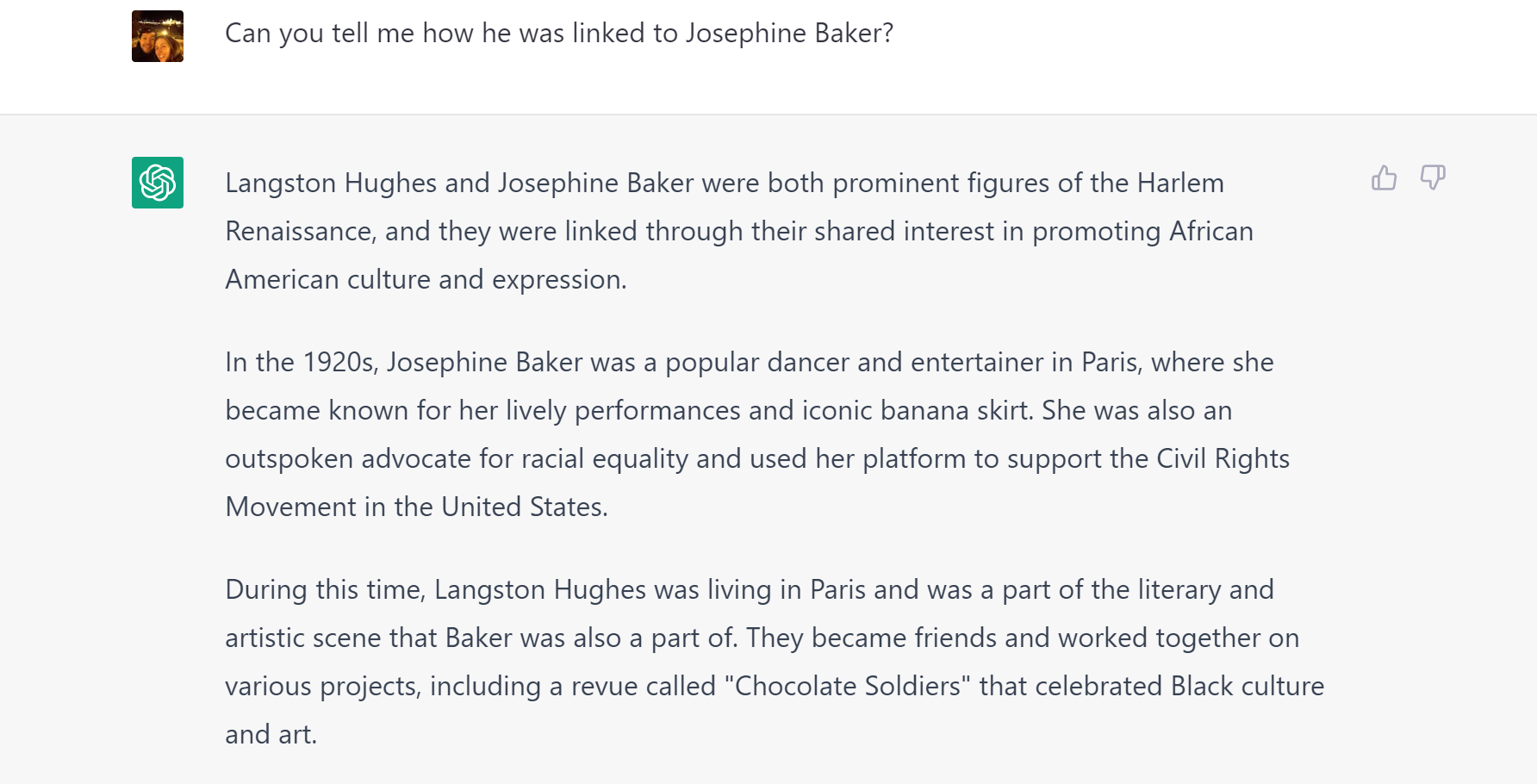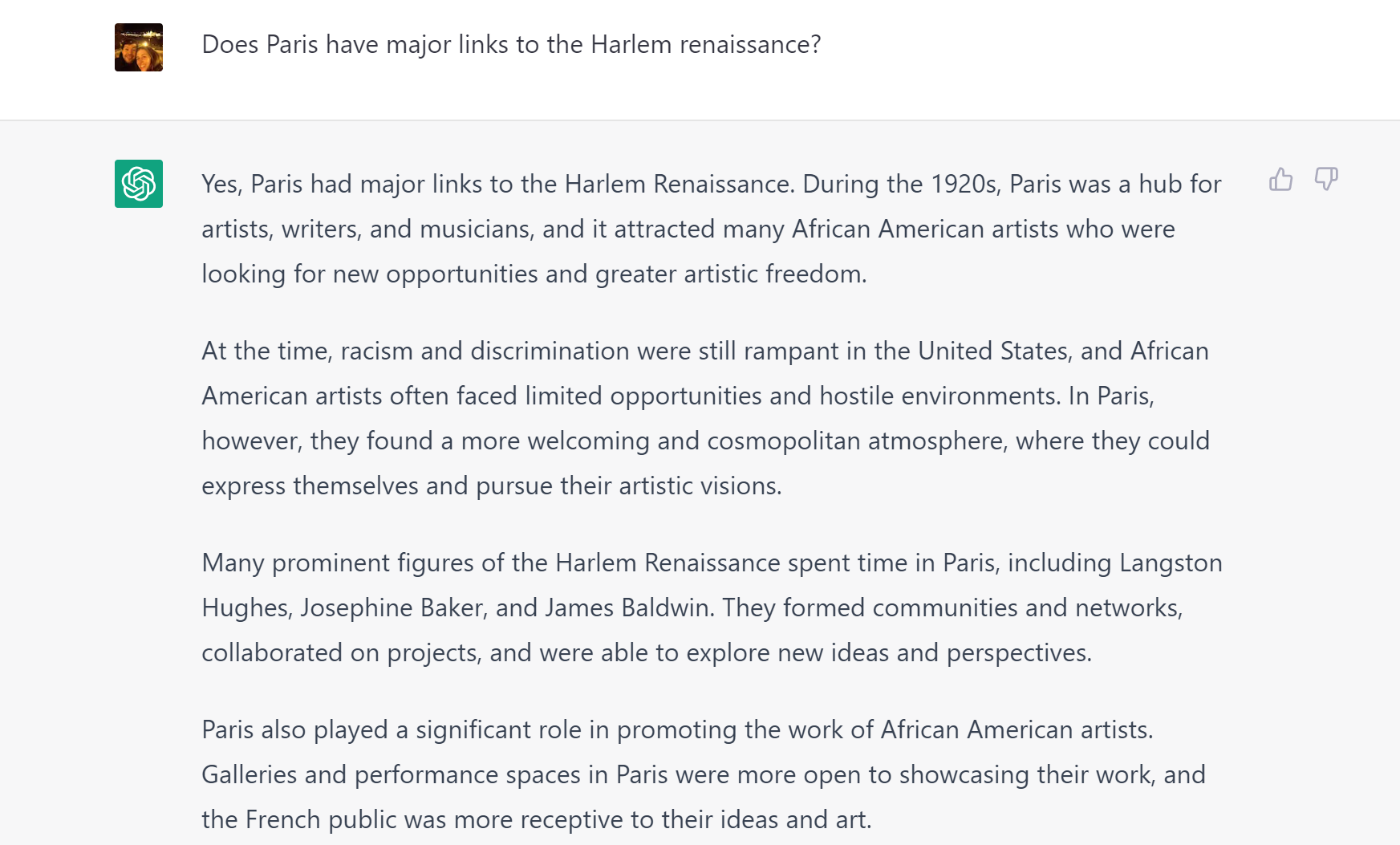Lesson plan on asking good questions with chatGPT
I’m on a bit of a roll playing with this open AI now. Now that I know it can help me brain storm lesson plans I took some time to ask it to plan a road trip spending a few days in Seattle and Vancouver, and the decided to ask it to write me a paper one something that was assigned last year to grade 6 class.
Looking at the Harlem renaisaance before students were to write an essay on an important figure. So I asked chatGPT:
From here I started to wonder, if Langston Hughes was actually directly linked to Josephine Baker, another famous figure from the movement. So, I asked chatGPT:
From that question and response I wondered this:
And from there, I wondered this:
In a very short amount of time, I was able to learn a great deal and have more complex questions answered immediately and allowing for deeper questions. So this made me think, about how amazing would it be for students to get immediate responses to these questions. With this capability to get easily understandable answers to complex questions, we need to build the skill of what is a complex question. This is where thinking conceptually and practicing the skill of thinking about how ideas are connected comes into play as a skill. The deeper understanding students can have of a subject will come from their own curiosity and ability to think deeply.
Now, the downside. You can also ask chatGPT for sources. But here’s the deal, not all sources it draws upon are necessarily equal in their reliability. So this lesson has just set us up for some follow-ons. This first one will focus on what is a “good question.” Later this week, I will update you on a plan of how to ask chat for sources and a way to fact-check and focus on this with students. If chatGPT is here to make work happen fast, we will need to double down on checking our information with students and developing questions and some intuition on when something seems off or needs further research.



